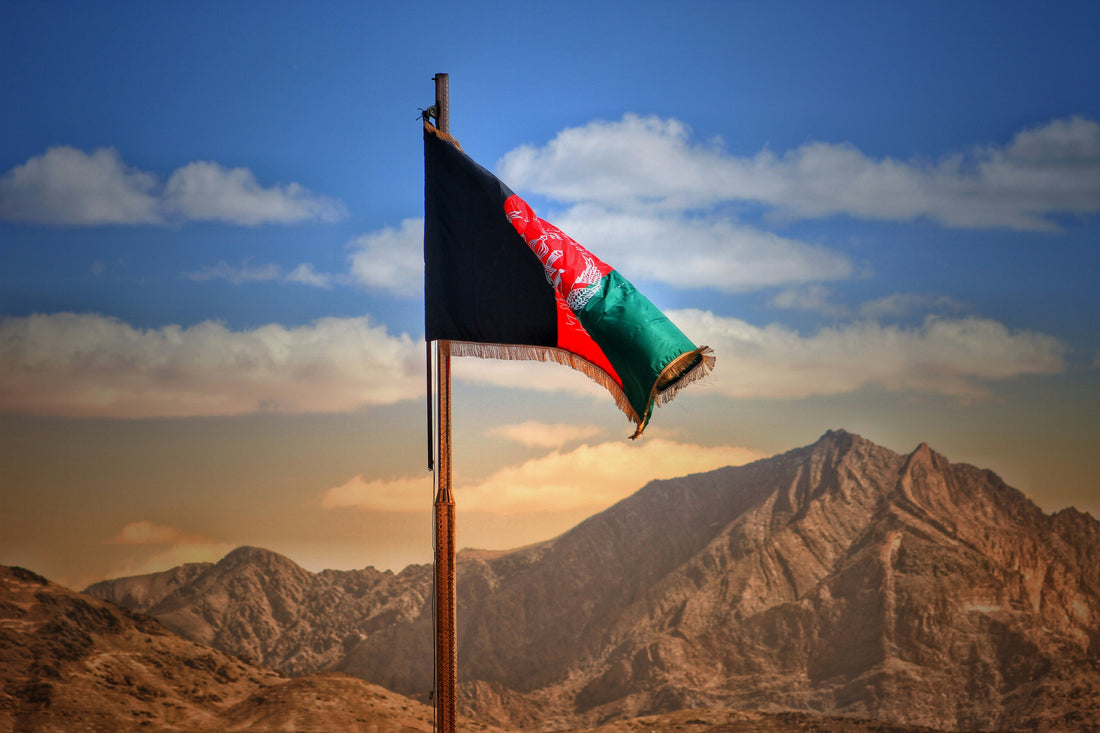
Dust, Fire and Silence: A Wrap-Up from Afghanistan
Share
There are places that don’t just change how you work — they change who you are. Afghanistan is one of them.
We travelled to the northeast of the country not as tourists, not even as buyers in the traditional sense, but as listeners. As observers. As those willing to walk into the mountains not only to find beauty — but to understand its cost, its meaning, its human depth.
This is not the story of a product.
This is the story of a place that burns with memory and stone.
Into the Hindu Kush
From the moment our boots hit the ground, the noise of the outside world fell away. The Hindu Kush does not welcome spectacle. It doesn’t yield to haste. Everything here takes time — every road, every word, every gesture. And so we slowed down. Quickly.
Reaching the mining areas is not glamorous. It means bumpy rides in outdated vehicles, long waits at military checkpoints, unexpected closures, and sudden shifts in schedule. It means hours on foot through rough terrain. But the mountains reward patience. They always have.
We arrived in Nuristan covered in dust, but already more focused than we had been in months. That focus would only sharpen.
Stone and Story
Our goal was clear: to source high-quality tourmalines directly from the region, in alignment with our ethical standards. But as always, what we found was more than minerals.
In simple rooms lit by a single bulb, we sat with miners, local traders and elders. Not over contracts — but over tea. The selection process was slow, deliberate. Each parcel of tourmalines told a different story: one was extracted just days ago from a shaft a few valleys over; another had been hidden away for years, passed quietly through family hands.
What struck us wasn’t just the quality of the stones — which was often extraordinary — but the intimacy of the process. No two tourmalines are alike. And no two miners carry the same relationship to what they find.
Some hold their stones gently, like offerings.
Others place them down with pride, the dust still clinging to the edges.
Every gesture meant something.
We weren’t choosing gems.
We were recognising labour, survival, and reverence.
The Weight We Carried
As the days passed, a rhythm emerged: long mornings spent travelling, long afternoons examining stones, long evenings in conversation. We learned to read the slight tremble in a miner’s voice when he presented a piece that had taken months to extract. We learned to trust our instincts — not just as gem professionals, but as humans.
By Day 4, we no longer saw tourmalines as "inventory."
We saw them as witnesses.
To landscapes shaped by tectonic force.
To families shaped by necessity.
To histories that rarely make it past the border.
The deeper into the region we went, the more we realised: this trip wasn’t about sourcing. It was about bearing witness.
More Than Ethics — Relationship
At Lisbon Gem Exchange, we don’t use the term “ethically sourced” as a slogan. We use it as a responsibility. And in Afghanistan, that means:
Paying miners directly, at above-market rates.
Offering ongoing support for safer working conditions.
Committing to return, to maintain relationship and continuity.
Listening first, always, before we speak or act.
This is not extractivism with a conscience.
This is commerce rooted in care.
The Return
When we packed our bags to return to Lisbon, the most valuable thing we carried wasn’t wrapped in tissue or velvet. It was dust under our fingernails. Names memorised. Conversations echoing in our heads. And a sense that we were bringing back not just stones — but responsibility.
We returned with tourmalines of remarkable beauty.
Greens that looked like mountain rain.
Watermelons cut with surgical precision.
Loupe-clean pieces that feel alive in the hand.
But each one is more than an object.
It is a fragment of that place.
Of that light.
Of those voices.
What Comes Next
These stones will soon be available through Lisbon Gem Exchange — not as luxury in the traditional sense, but as living material: rare, raw, full of tension and grace. Each will be accompanied by context, not just certification. We are working to create a traceability model that includes not only gemological data but human data — where the stone came from, who mined it, and how it reached us.
We believe the future of high jewellery is not louder.
It’s more precise.
More honest.
More deeply rooted in origin.
To work in Afghanistan is not easy.
But nothing meaningful ever is.
We return changed — not because we bought gems, but because we earned trust, accepted discomfort, and saw beauty where others only see risk.
We will go back.
Not for more stones — but to continue the relationship we’ve started.
Because for us, a gem is not just a possession.
It is a moment of encounter —
between earth, history, and you.
Lisbon Gem Exchange
Field-sourced. Ethically driven. Obsessed with truth.



